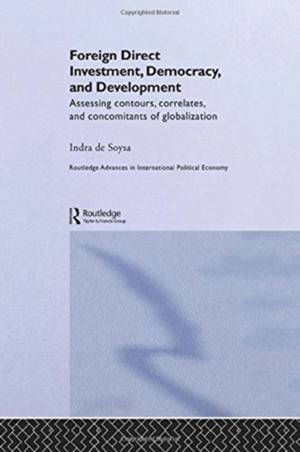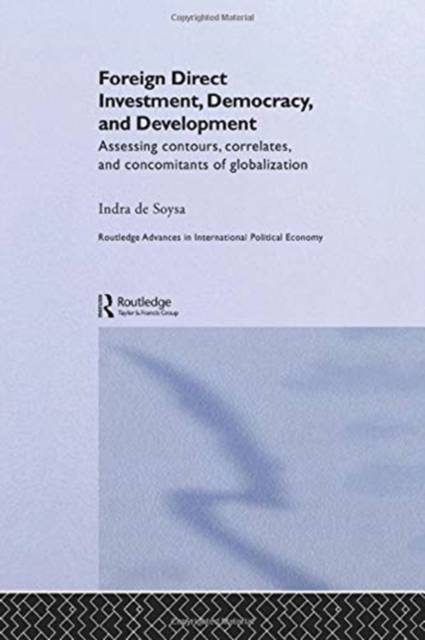
- Afhalen na 1 uur in een winkel met voorraad
- Gratis thuislevering in België vanaf € 30
- Ruim aanbod met 7 miljoen producten
- Afhalen na 1 uur in een winkel met voorraad
- Gratis thuislevering in België vanaf € 30
- Ruim aanbod met 7 miljoen producten
Zoeken
Foreign Direct Investment, Democracy and Development
Assessing Contours, Correlates and Concomitants of Globalization
Indra de Soysa
€ 44,45
+ 88 punten
Uitvoering
Omschrijving
The effects of globalization on economy and society are highly contested subjects in academic and political arenas. This study brings an empirical perspective to the crucially important arguments that encapsulate the major debates in this area. Using quantitative data, this book addresses the shape and degree of internationalisation by focussing on the impact of Foreign Direct Investment (FDI) and democracy on economic development and the effects of economic internationalisation on democracy. The author examines democracy's effects on economic growth and considers the claim that foreign capital has a detrimental effect on democracy to show that FDI in fact plays a supporting role for democracy and creates higher growth rates than domestic capital. From these results the author suggests that policy makers should seek to encourage globalization by ensuring open access to products from poorer countries, encouraging private investment within poorer countries and that such countries should concentrate on building up human and institutional capital to attract investment.
Specificaties
Betrokkenen
- Auteur(s):
- Uitgeverij:
Inhoud
- Aantal bladzijden:
- 176
- Taal:
- Engels
- Reeks:
Eigenschappen
- Productcode (EAN):
- 9781138810747
- Verschijningsdatum:
- 23/06/2014
- Uitvoering:
- Paperback
- Formaat:
- Trade paperback (VS)
- Afmetingen:
- 156 mm x 234 mm
- Gewicht:
- 249 g

Alleen bij Standaard Boekhandel
+ 88 punten op je klantenkaart van Standaard Boekhandel
Beoordelingen
We publiceren alleen reviews die voldoen aan de voorwaarden voor reviews. Bekijk onze voorwaarden voor reviews.











